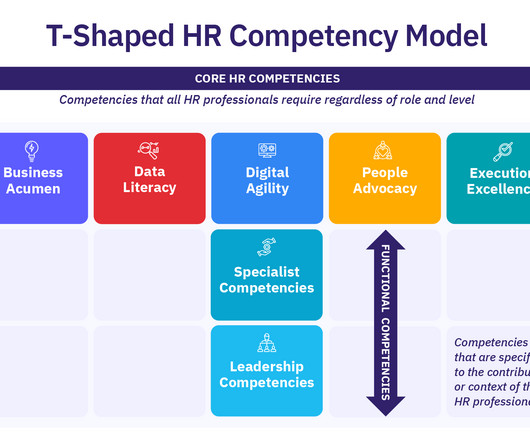What Is Human Resources?
Analytics in HR
JULY 31, 2023
As a function, HR covers the processes, practices, and strategies to attract, develop, and retain employees who contribute to the company’s overall success. HR is vital in aligning the organization’s business objectives and employees’ needs and aspirations.




















Let's personalize your content